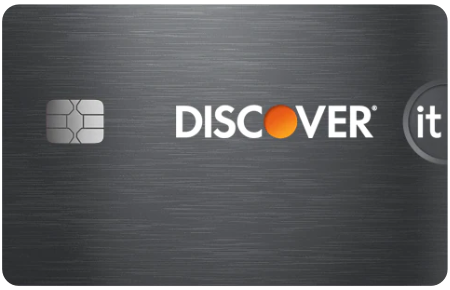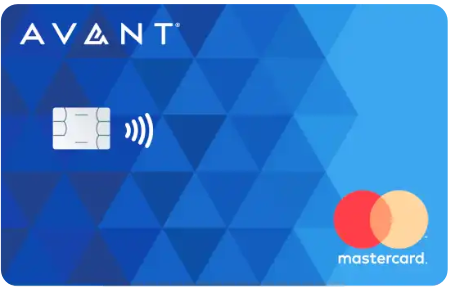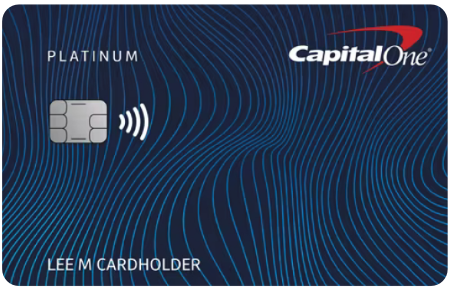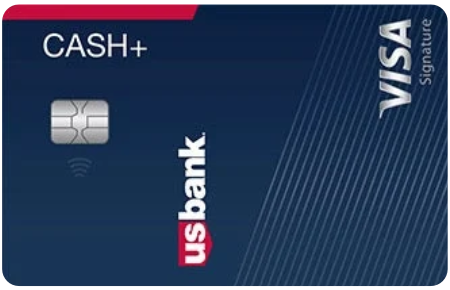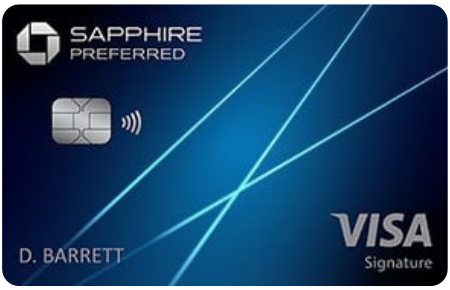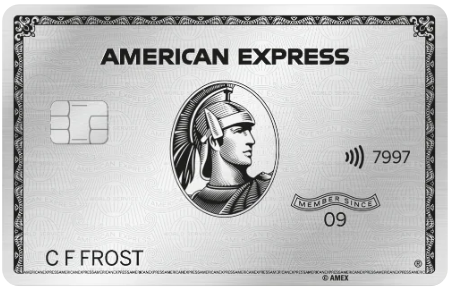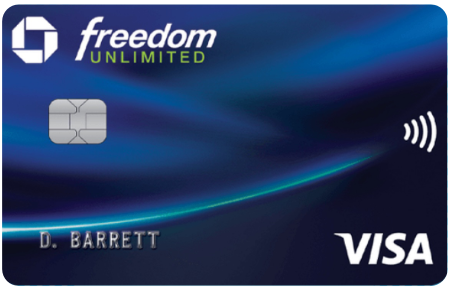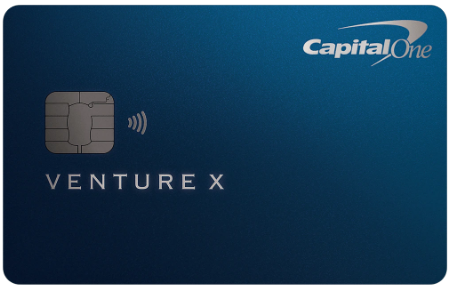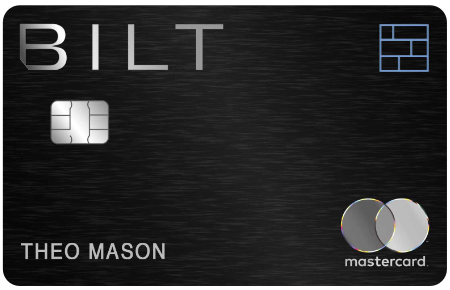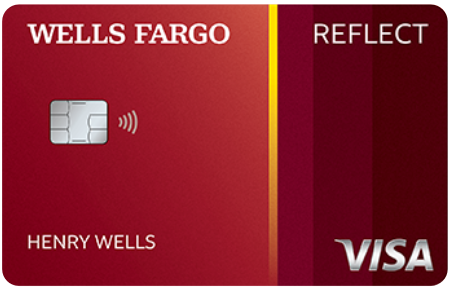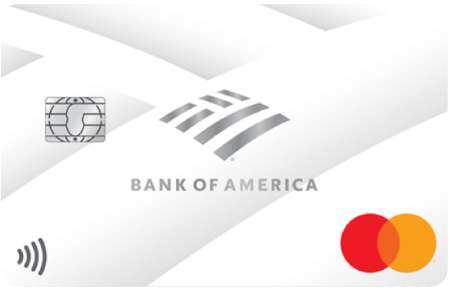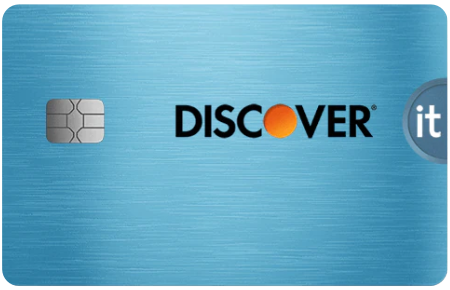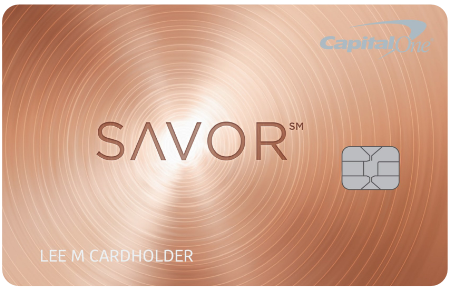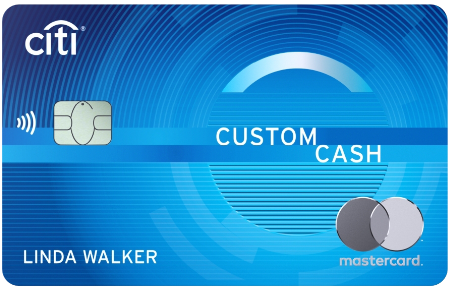The Best Credit Cards For Consumers On The Market
While some people try to avoid credit cards to stay out of debt, credit cards can be a great asset for your long-term financial well-being. Whether you plan to use your credit card for everyday purchases or big-ticket items like a cruise or a new computer, you must practice good financial habits to get the most out of your cards.
Our team of experts gathered the ultimate list of credit cards that suit a variety of people, regardless of your credit score and history. If you are ready to find the most beneficial credit card for your situation, keep reading this article to learn everything you need to know.
5 Best Credit Cards For Building Credit
5 Best Credit Cards For Travelling
5 Best Credit Cards With 0 Intro APR
A credit card company will make a lot of promises to get you to sign up. They know many people allow their credit balances to build up, allowing banks and other lenders to collect billions of dollars every year in credit card interest alone. So, if you’re looking for the best credit cards for consumers, you will first need to determine how you will use your card.
15 Best Credit Cards For Consumers
Best for Building Credit
- Petal 1 “No Annual Fee” Visa Credit Card
- Discover it Secured Credit Card
- Avant Credit Card
- Capital One Platinum Secured Credit Card
- U.S. Bank Cash+ Visa Secured Card
- Chase Sapphire Preferred Card
- The Platinum Card from American Express
- Chase Freedom Unlimited
- Capital One Venture X Rewards Credit Card
- Bilt World Elite Mastercard
- Wells Fargo Reflect Card
- Bank Americard
- Discover It Cash Back
- Capital One SavorOne Cash Rewards Credit Card
- Citi Custom Cash Card
Learn How to Use a Credit Card Before You Take the Plunge
If you already have a credit card and have been using it without issues for years, you can go ahead and skip this section. However, if you are relatively new to the world of credit or you simply want to learn how to utilize your new credit card better, keep reading. You will need to learn about good financial habits and understand exactly how credit cards work before you start applying.
First, it is important to understand the basic terminology. Credit card companies will frequently throw terms at you like “premier rewards program,” “1.5% cash back,” or “0% intro APR,” but you may have little or no concept of what these actually mean. In some cases, you may have to do a little digging, as every provider uses unique jargon, especially when it comes to their special offers and bonus rewards.
However, when discussing the most important elements of credit cards, the terminology is largely the same across the board:
Annual Fee: An annual fee is an amount you need to pay every year to keep a credit card account open. These days, many credit card companies offer cards with no annual fees or fees that can be waived if you meet certain criteria. If your card does have a fee, it will often land somewhere between $100 and $200.
Credit Limit: A credit card functions like a loan that is always available whenever you need it. Your credit limit is the maximum amount of money you can spend on a given credit card. If you go over your credit limit, you will likely have to pay penalty fees.
Balance: Balance refers to the amount of money charged to your credit card. Many people leave a balance on their credit card each month. This balance will accrue interest, which increases the balance each month unless it is paid off.
APR: APR stands for Annual Percentage Rate. This is the amount of interest you will need to pay monthly (using a yearly rate) on any balance remaining on your credit card. Generally, this interest is compounded daily, but if you pay off any balance on your credit card before it has had time to accrue interest, you won’t have to pay anything at all. APRs can range anywhere from 10% to 30%.
Credit Score: Your credit score measures your financial responsibility and “creditworthiness” in the eyes of a credit card provider or another lender. If you have never had a credit card or taken out a loan, you may not have a score at all. These scores are determined by a credit bureau (like Equifax or TransUnion) and range anywhere from 300 (bad credit) to over 800 (excellent credit). The better your credit score, the better your chances of getting a loan or credit card with favorable terms like high limits, low APR, and additional rewards or benefits.
Credit History: Your credit history is a more detailed image of your credit score. Your credit naturally changes over time based on your financial decisions. If you take out a mortgage on a home, this will show up in your credit history. In other words, if a company or credit bureau runs a credit check on you, they will see what kind of major financial decisions you have made. They will also be able to see if you have a history of making payments on time and staying within your credit limits.
Introductory Rate: Many credit card companies offer introductory rates (APRs) to entice consumers to apply for a new card. This means that you will either pay less than the standard rate or 0 intro APR for a set period of time (typically the first 12 to 24 months from account opening). Cards with low or 0 intro APR can often be used to transfer a balance from an existing credit card with a much higher interest rate, potentially saving you a lot of money on interest.
Minimum Payment: The minimum payment or minimum amount due is the lowest dollar amount you must pay on your monthly balance. The minimum payment is calculated based on your account balance and APR. If you only make your minimum payment each month, it will take longer to pay off your credit cards, and you will pay much more in interest. For this reason, you should always try to pay more than the minimum to avoid getting stuck in a cycle of debt.
What Credit Score Do I Need to Get a Credit Card?
As you can imagine, your credit history and score can have a huge impact on the type of card you can acquire. If you have no credit or bad credit, you may need to opt for a secured credit card just to rebuild your score. A secured card allows you to deposit funds into your credit card account (much like a debit card), and then you can use it to make everyday purchases. This is one of the easiest ways for people with bad credit to build up their credit and, with time, qualify for a traditional credit card.
However, this still doesn’t answer the question at hand. What credit score do you need to get a credit card? Moreover, what scores will qualify you for one of the best credit cards on the market? Fortunately, there are some great credit cards that you can get with low or no credit. We will examine some of these cards that can help you build or rebuild your credit a little later on.
That said, if you want to apply for a standard credit card, you will typically need a score of at least 580. This is on the very low end of the scale, meaning that this score may not get you one of the best credit cards. Even if you do get approved for a great card, you will likely have a high APR.
For this reason, it is generally recommended that you have a score of at least 620 when applying for credit cards. This is considered a “fair” score, and it is the minimum score you would need to qualify for many different types of credit, including mortgages and auto loans. With a score of 620 or higher, you can qualify for the vast majority of consumer credit cards out there.
Finally, it is important to look at the kind of credit score you will need to get approved for a great card with a low APR and ideal terms and conditions. Anything above 740 is considered “very good,” while anything above 800 is considered “excellent.” In most cases, a score above 700 will get you much better terms when you are ready to apply for a new credit card. So, if you know you want to get a card with a low APR, consider working on your score until you can get it somewhere above 700.
Choosing the Best Credit Card For You
Though you may be tempted to apply for the first card that you come across, you should always consider your specific needs before making any final decisions. This is especially true when it comes to credit cards. You may end up applying for a card that simply does not meet your needs or provide you with the benefits you want.
For example, let’s say that you are a small business owner. If you want to get a credit card for your business, you could always apply for a personal credit card and use it to pay for business expenses. However, this can get confusing, as it will inevitably mix your personal finances with your business finances. For this reason, most small business owners apply for small business credit cards. These types of cards often have higher limits (depending on your business income) and specific rewards programs that can help pay for standard business expenses like accounting software.
However, in today’s guide, we are focusing on personal credit cards for consumers. Even if you don’t need a business credit card, you will still need to consider the type of benefits you want and the lifestyle you live. Generally speaking, there are a few different categories of cards that appeal to different demographics:
Credit-Building Cards: These cards help people with bad credit or no credit build up their scores over time. You can qualify for these cards even if you have really bad credit. However, keep in mind that these cards will often have high APRs and low credit limits. In some cases, you may only qualify for a secured credit card. These can offer people a great way to avoid debt accumulation while also building credit.
Travel Rewards Cards: As the name implies, travel rewards cards offer you benefits that can help pay for travel expenses, including flights, hotels, and rental cars. You may also get special discounts by making eligible purchases with specific brands affiliated with your credit card company. Many of these cards use “miles” reward programs that can be redeemed as credit toward travel expenses, but some also offer simple cash-back programs for travel.
Low Intro APR Cards: Finally, credit cards with a low APR appeal to everyone. However, unless you have an excellent credit history and a high score, you probably won’t qualify for one. Fortunately, you can still take advantage of temporary low rates with a low or 0 intro APR credit card. These cards will give you a set period of time (usually one year or more) to take advantage of absolutely no interest on your purchases. After the low or 0 intro APR period ends, your interest rate will return to a standard fixed or variable rate.
Naturally, these are not the only types of cards on the market. There are also standard cash-back cards, but these days, nearly every credit card offers some form of cash-back program on everyday purchases. In any case, the three types of credit cards listed above generally appeal to three distinct demographics.
Credit-building cards are great for young people with no credit, students, or people with bad credit. Travel rewards cards are great for consumers who travel frequently, for work or leisure. Lastly, low-intro APR cards are ideal for people who need to make large purchases soon after getting a card and plan to pay the balance down within the first year or two. Additionally, low or 0 intro APR cards are ideal for people who want to transfer a balance from a card with a high-interest rate.
Best Credit Cards to Build Credit
If you want to build up your credit score, you are definitely not alone. Millions of Americans struggle with poor credit for various reasons, from that one late payment they made last year to regularly high usage of credit cards. No matter why you want to build credit, you can find a card that fits your needs.
Below, we have done the research for you to find five of the best credit cards for people who want to build credit:
Petal 1 “No Annual Fee” Visa Credit Card
The Petal 1 Visa Credit Card is one of the best standard credit cards for people with bad credit. Why? Because you can qualify for a new card even if your credit score falls below 580. Just keep in mind that a very low credit score will mean that you also get a very low credit limit. With the Petal 1, credit limits range between $300 and $5,000, based on your credit history. Either way, you don’t have to pay an annual fee with this card, and you can even get up to 10% cash-back deals if you shop with select merchants.
- Annual Fee: $0
- Sign-Up Bonus: None
- Intro APR: 22.99% – 32.49% (Variable)
- Recommended Credit Score: 500 and above
- Rewards: 2% to 10% cash back at select merchants
- Additional Benefits: Automatic credit limit increase after 6 months of on-time payments
- Best For: Consumers with bad credit
Pros
Cons
Discover it Secured Credit Card
The Discover it Secured Credit Card is one of the easiest secured cards to acquire, as you don’t even need to have a credit score. You can simply apply, make the mandatory $200 deposit, and you have a secured card. Over time, this will allow you to safely build your credit without accumulating any debt. After the first seven months, Discover will even review your account to see if you qualify for a regular credit card, in which case you will get your $200 deposit back and automatically have your secured card switched to an unsecured card.
- Annual Fee: $0
- Sign-Up Bonus: None
- Intro APR: 25.99% (Variable)
- Recommended Credit Score: N/A
- Rewards: 1% cash back on all purchases, plus 2% cash back at gas stations and restaurants if you spend more than $1,000 per quarter
- Additional Benefits: Automatic 2x unlimited cash back match at the end of your first year
- Best For: Consumers with no credit
Pros
Cons
Avant Credit Card
The Avant Credit Card is a pretty standard card that enables people with “fair” credit to get a new card quickly. It does come with a $59 annual fee, though this can be lowered over time as your credit improves. And while the APR is relatively high, Avant only offers credit limits between $300 and $2,000, greatly reducing the risk of consumers falling into a cycle of insurmountable debt. Plus, Avant has no hidden fees and does not require a security deposit. And while Avant does not offer any bonus rewards, it does make it easy to build up credit at a faster rate with an unsecured card.
- Annual Fee: $0-$59
- Sign-Up Bonus: None
- Intro APR: 27.99%-29.99% (Variable)
- Recommended Credit Score: 600 and above
- Rewards: None
- Additional Benefits: Credit limit increases with a history of on-time payments
- Best For: Consumers with fair credit
Pros
Cons
Capital One Platinum Secured Credit Card
The Capital One Platinum Secured Credit Card is one of the best secured credit cards for people who need to build their credit and do not have a lot of cash on hand. Though you still have to make a deposit to open your account and get a credit line, you can opt to deposit as little as $49 to get started. Plus, if you make your payments on time, you can get your money refunded and have your card changed from secured to unsecured.
- Annual Fee: $0
- Sign-Up Bonus: None
- Intro APR: 28.49% (Variable)
- Recommended Credit Score: N/A
- Rewards: None
- Additional Benefits: Refundable deposits, no hidden fees, and automatic credit line reviews
- Best For: Consumers with limited cash
Pros
Cons
U.S. Bank Cash+ Visa Secured Card
The U.S. Bank Cash+ Visa Secured Card may not have the lowest APR, but it is one of the safest ways to build up your credit. With enhanced security measures to protect your identity, this credit card makes it easy to deposit funds, establish a credit limit, and begin making purchases and payments to establish a credit history. It is also one of the few secured credit cards on the market to offer cash-back deals. Starting deposits can start as low as $300 and go as high as $5,000.
- Annual Fee: $0
- Sign-Up Bonus: None
- Intro APR: 28.99% (Variable)
- Recommended Credit Score: N/A
- Rewards: 1% cash back on all purchases and up to 5% cash back on select purchases
- Additional Benefits: Increased security against identity theft
- Best For: Consumers with no credit
Pros
Cons
Best Credit Cards For Travelers
Do you like to take frequent vacations with your friends and family? Do you need to travel a lot for work? Or do you simply want to build up travel rewards to plan a big trip in the future?
If you answered yes to any of these questions, then you should strongly consider a travel rewards credit card. These cards make it easy to pay for travel-related purchases while qualifying for discounts, accumulating travel points, or getting cash-back deals. If you plan on traveling abroad, you’re in luck, as many travel rewards cards do not have any foreign transaction fees.
Based on our research, the five credit cards below are some of the best credit cards for travelers:
Chase Sapphire Preferred Card
The Chase Sapphire Preferred Card is one of the best credit cards available for frequent travelers. Not only can you easily accumulate travel rewards points on eligible purchases, but you can also get a sign-up bonus of 60,000 points if you spend at least $4,000 on your card within the first three months. By using the Chase Ultimate Rewards Program, you can earn 5x points for every dollar you spend on travel. The Chase Sapphire Preferred Card also benefits from competitive APRs, relatively low credit requirements, and no foreign transaction fee.
- Annual Fee: $95
- Sign-Up Bonus: 60,000 rewards points (valued at $750) once you spend at least $4,000 within the first three months
- Intro APR: 18.24%–25.24% (Variable)
- Recommended Credit Score: 640 and above
- Rewards: Between 1x and 5x travel rewards points on your purchases
- Additional Benefits: Earn $50 every calendar year for hotel stays
- Best For: Consumers with fair credit who travel frequently
Pros
Cons
The Platinum Card from American Express
The Platinum Card from American Express is specifically designed for people who like to travel in style. It is absolutely bursting with luxury reward benefits. However, these benefits do come at a cost. The Platinum Card from American Express has an annual fee of $695, which is far higher than most other travel rewards cards. However, with this fee, you also get multiple annual travel credits in addition to the standard bonus reward points, plus no foreign transaction fees on purchases made outside of the United States.
- Annual Fee: $695
- Sign-Up Bonus: 125,000 rewards points once you spend at least $6,000 within the first six months
- Intro APR: 18.99%–25.99% (Variable)
- Recommended Credit Score: 740 and above
- Rewards: Between 1x and 5x travel rewards points on your purchases
- Additional Benefits: Earn a $200 hotel credit and a $200 airline fee credit every calendar year
- Best For: Consumers with good or excellent credit who travel frequently
Pros
Cons
Chase Freedom Unlimited
The Chase Freedom Unlimited Card is one of the best all-around credit cards on this list. For travelers, you get additional cash-back rewards on travel bookings, on top of the cash-back rewards for all of your purchases. Chase also entices new customers with a $200 cash-back bonus reward if they spend $500 within the first three months. If that weren’t enough, this travel card does not have a foreign transaction fee. Plus, it comes with a 0 intro APR program for the first 15 months, making it a contender for one of the best low APR cards on the market.
- Annual Fee: $0
- Sign-Up Bonus: $200 cash back if you spend $500 within the first three months, as well as 5% cash back on grocery store purchases for the first year
- Intro APR: 17.24%–25.99% (Variable)
- Recommended Credit Score: 680 and above
- Rewards: Get 1.5% cash back on all purchases and up to 5% on qualifying purchases
- Additional Benefits: Cash-back rewards never expire
- Best For: Consumers who want great cash-back deals for travel
Pros
Cons
Capital One Venture X Rewards Credit Card
The Capital One Venture X Rewards Credit Card does come with a relatively high annual fee, but it also comes with a ton of travel reward benefits. First, you can get up to 75,000 bonus miles by using your card on $4,000 worth of purchases in the first three months. Even if you miss out on this bonus, you still get 10,000 annual miles for free and a $300 annual travel credit, on top of the miles you accumulate through purchases. As an added bonus, you can look forward to a $0 foreign transaction fee on all of your overseas purchases.
- Annual Fee: $395
- Sign-Up Bonus: 75,000 miles if you spend at least $4,000 within the first three months
- Intro APR: 19.99% – 26.99% (Variable)
- Recommended Credit Score: 720 and above
- Rewards: 2x miles on all purchases, 10,000 annual miles, and a $300 annual travel credit
- Additional Benefits: Up to $100 credit on Global Entry or TSA PreCheck
- Best For: Consumers with excellent credit who travel frequently
Pros
Cons
Bilt World Elite Mastercard
Bilt World Elite Mastercard is a highly unique card that enables you to build up travel rewards points on many types of purchases. Plus, it is one of the few credit cards that specifically markets itself as a card with which you can pay your rent. Not only do you get travel points for paying your rent with the Bilt World Elite Mastercard, but you also do not have to pay any foreign transaction fees like you would with many other credit cards.
- Annual Fee: $0
- Sign-Up Bonus: None
- Intro APR: 19.24%, 22.24%, or 27.24% (Variable)
- Recommended Credit Score: 720 and above
- Rewards: 1x reward points on rent, 2x reward points on travel, and 3x reward points on dining
- Additional Benefits: No transaction fees on rent payments
- Best For: Consumers who travel frequently and want to use their credit card for rental payments
Pros
Cons
Best 0 Intro APR Credit Cards
As previously discussed, low or 0 intro APR cards are great for people who plan on making a large purchase soon and want to avoid high interest in the near future, as well as those who want to make balance transfers from cards with higher APRs. For this reason, you might see this type of credit card referred to as a “balance transfer card.” In any case, our research indicates that the options below are five of the best 0 intro APR credit cards on the market:
Wells Fargo Reflect Card
The Wells Fargo Reflect Card is perfect for anyone who wants to avoid high interest rates when they sign up for a new card. Not only do you get 0 intro APR for the first 18 months, but you can also extend this period by an additional 3 months if you make all of your payments on time. However, you should keep in mind that balance transfers come with a 3% fee. Fortunately, this card offers some unique benefits, including cellphone protection and access to 24/7 emergency roadside assistance.
- Annual Fee: $0
- Sign-Up Bonus: 0% Intro APR for 18 months (with a possible 3-month extension)
- Intro APR: 15.99%-27.99% (Variable)
- Recommended Credit Score: 640 and above
- Rewards: $600 credit for cellphone protection and access to 24/7 emergency roadside assistance
- Additional Benefits: Cash-back deals on select purchases
- Best For: Consumers who want to make balance transfers
Pros
Cons
Bank Americard
Bank Americard is another great card for consumers who want to avoid high-interest payments on purchases or make balance transfers to take advantage of 0 intro APR. However, it is important to note that the intro APR only applies to balance transfers made within the first 60 days. Additionally, you will need to pay a balance transfer fee of 3% each time you make a transfer. Nonetheless, Bank Americard still gives you 21 months with no APR and very competitive interest rates afterward.
- Annual Fee: $0
- Sign-Up Bonus: 0% Intro APR for 21 months and no APR on balance transfers made within the first two months
- Intro APR: 15.99%-27.99% (Variable)
- Recommended Credit Score: 680 and above
- Rewards: Earn cash-back reward points on eligible purchases
- Additional Benefits: No fee for going over your credit limit
- Best For: Consumers who want to make a large purchase
Pros
Cons
Discover it Cash Back
The Discover it Cash Back Card is another great all-around card that gives you plenty of reasons to apply. First and foremost, you get 15 months of 0 intro APR. Like most cards, you will still need to pay a 3% balance transfer fee, but you can still save a lot of money by moving your debt over from a high APR card. Additionally, the Discover it Cash Back card has multiple cash-back deals, including 1% cash back on all purchases and a dollar-for-dollar cash rewards match program at the end of your first year.
- Annual Fee: $0
- Sign-Up Bonus: 0% Intro APR for 15 months on purchases and balance transfers
- Intro APR: 14.99%-25.99% (Variable)
- Recommended Credit Score: 680 and above
- Rewards: Earn 1% cash back on all purchases and 5% cash back on purchases from select merchants
- Additional Benefits: Automatic 2x unlimited cash back match at the end of the calendar year
- Best For: Consumers who want low APR and cash-back deals
Pros
Cons
Capital One SavorOne Cash Rewards Credit Card
The Capital One SavorOne Cash Rewards Credit Card is one of the few “high-end” cards that does not charge an annual fee. While you do need excellent credit to qualify, you get 0% APR for the first 15 months, as well as numerous cash-back deals. This 0 intro APR card also doubles as a travel rewards card, as it gives you access to the Capital One Travel program. This program offers a wide array of deals, including cash back on hotels and rental cars.
- Annual Fee: $0
- Sign-Up Bonus: 0% Intro APR for 15 months on purchases and balance transfers, as well as a $200 cash reward if you spend $500 within the first three months
- Intro APR: 17.99% – 27.99% (Variable)
- Recommended Credit Score: 720 and above
- Rewards: Earn 1% cash back on all purchases and 3% cash back on dining and entertainment
- Additional Benefits: Access to Capital One Travel, giving you up to 5% cash back on hotels and rental cars
- Best For: Consumers with excellent credit who want a low APR
Pros
Cons
Citi Custom Cash Card
The Citi Custom Cash Card is another great 0 intro APR card, offering 15 months free of interest. However, the one downside is that the Citi Custom Cash Card has a balance transfer fee of 5%, which is higher than the industry standard of 3%. Nonetheless, this is still a great card for consumers who want to save on introductory interest rates and even get customizable cash-back rewards. This means you can choose the types of purchases you make the most and get extra reward points for purchases that fall within those categories.
- Annual Fee: $0
- Sign-Up Bonus: 0% Intro APR for 15 months on purchases and balance transfers
- Intro APR: 16.99% – 26.99% (Variable)
- Recommended Credit Score: 680 and above
- Rewards: Earn 1% cash back on all purchases and 5% cash back on purchases in select categories of your choosing
- Additional Benefits: $200 cash reward if you spend $1,500 within the first six months
- Best For: Consumers who want low APR and customizable rewards
Pros
Cons
Frequently Asked Questions About The Best Cash Back Credit Cards
There is no perfect answer to this question, as different banks and credit card companies offer deals to help people with specific needs. That said, American Express is often considered one of the best companies for credit cards because of its great deals, high credit limits, and competitive APRs. However, you will typically need a good or excellent credit score to qualify for most cards from American Express.
The number of credit cards you need will depend on your specific financial circumstances. That said, most people should not have more than three active credit card accounts at a time. Why? Because having more than three increases the chance of taking on more debt than you can handle.
There are four major credit card networks. These are Visa, Mastercard, Discover, and American Express. Keep in mind that some merchants accept all four networks, while others will accept some and not others. Typically, Visa is accepted nearly everywhere.
In most cases, canceling a credit card will not have a significant impact on your credit score. However, this assumes that the credit card has already been paid off. If you try to cancel a credit card with an unpaid balance, you may run into issues with your bank. Otherwise, your credit score will not be hurt by canceling a card.
Both Visa and Mastercard provide quality service and are accepted across the United States and the world. However, many merchants prefer Visa because it generally offers more competitive processing fees. As a result, Visa is accepted at more places than Mastercard worldwide.
What Type Of Credit Card Suits Your Situation Best?
Compare the best credit cards in the overview above.

